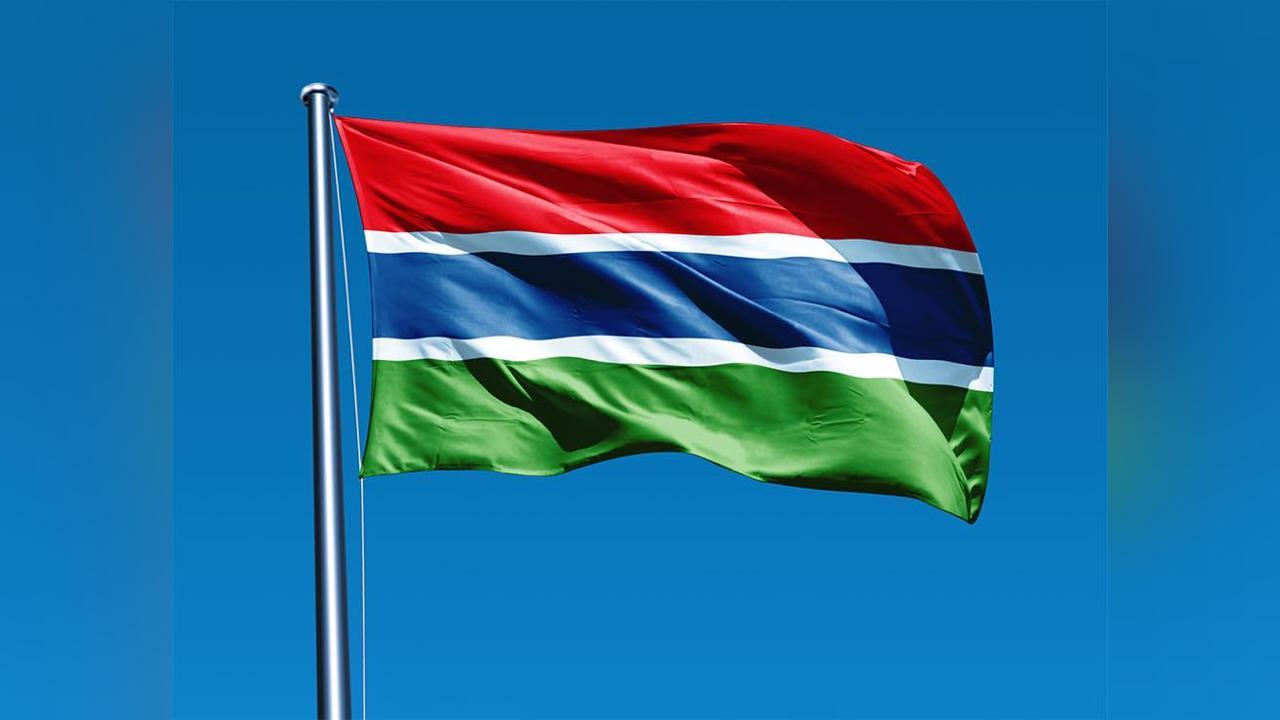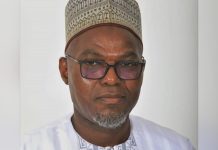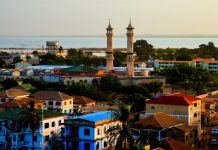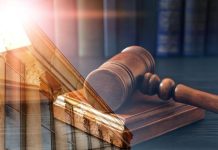By Lamin J. Darbo
Africa-Press – Gambia. That it occurred at all was The Gambia’s wonder of wonders.
On 19 January 2017, a jubilant nation watched His Excellency Adama Barrow subscribe to the oath of office as President of the Republic in the Gambian Embassy, Dakar.
Two days later, on 21 January 2017, His Excellency Sheikh Professor Alhajie Dr Yahya AJJ Jammeh (the Professor) drew the curtain on a most consequential period in The Gambia’s public life. The Professor left his fiefdom, a country he claimed to have own for exile in Equatorial Guinea. In his coterie, the influential and acerbic Deputy Speaker of the National Assembly with the dubious honour of being among The Gambia’s shortest serving Cabinet appointees.
An unsettled nation was trying to locate its feet but celebrate it did. It also recognised that from creation, governance was its biggest challenge.
Among the transitional mechanisms a ‘Commission OF Inquiry into the financial activities of public bodies, enterprises and offices as regards their dealings with former President Yahya Jammeh and connected matters (the Janneh Commission)’ was constituted by the President via Legal Notice No. 15 of 2017.
The remit of any Commission of Inquiry constituted by a president is exclusively delineated and bounded in sections 200 to 206 of the Constitution of the Republic of The Gambia, 1997:-
200 Commissions of Inquiry
(1) The President may, whenever he or she deems it advisable, issue a Commission appointing one or more Commissioners and authorising such Commissioners to inquire into-
(a) the conduct of any public officer;
(b) the conduct of any District Seyfo or Alkalo;
(c) the conduct or management of any department or authority of the public service or any local government authority or Public Enterprise; or
(d) any matter whatever arising in The Gambia in which an inquiry would the opinion of the President, be for the public good.
(2) The National Assembly may request the President to establish a Commission of Inquiry for any of the purposes set out in subsection (1).
(3) Except as may be ordered by the presiding Commissioner in the interest of public morality, public safety or public order, the proceedings of a Commission of Inquiry shall be held in public:
Provided that the presiding Commissioner shall be entitled to exclude any particular person or persons for the preservation of order
202 Functions and powers of Commission
(1) A Commission of Inquiry shall –
(a) make a full and impartial investigation into the matter in respect of which the Commission is established: and
(b) furnish in writing a report on the results of the inquiry, including a statement of the reasons leading to the conclusions of the Commission.
(2) A Commission of Inquiry shall have all the powers, rights and privileges of a judge of the High Court at a trial in respect of –
(a) enforcing the attendance of witnesses and examining them on oath, affirmation or otherwise;
(b) compelling the production of documents;
(c) issuing a commission or request for the examination of witnesses abroad; and
(d) making interim orders.
(3) A Commissioner appointed under section 200 shall not be liable to any action or suit in respect of any matter or thing bona fide done or omitted to be done in the performance of his or her functions as a Commissioner.
Without lawful authority, the Janneh Commission sanctioned the disposal of the Professor’s assets during the pendency of its inquiry and thereby significantly contributed to tremendous economic loss to the country by the undervaluation of seized properties.
Over time, there were demands for a publication of the items sold, to whom, and for how much, a simple request the Government refused to comply with for years on end. By its current primary legal adviser, it stonewalled and interposed the ridiculous argument of protecting the privacy of the buyers, an argument that must have crashed the gates of No. 1 Marina into the presidential offices through the medium of newspapers like The Standard.
Into this deadlock was thrown the report of The Republic, edited by the distinguished investigative journalist, Mustapha K. Darboe, and titled: THE ASSETS OF GAMBIA’S FORMER DICTATOR GO FOR A SONG. It detailed the behind the scenes dealings of a whole range of actors tasked with administering, albeit informally, of the Janneh Commission process.
The scandal triggered by the wrongful Janneh Commission conduct of interim selling, as well the overall disposal of hugely expensive items at giveaway prices, outraged a majority of Gambians. It gave birth to Gambians Against Looted Assets (GALA), whose application for a permit to protest this incomprehensible behaviour was refused by the Inspector General of Police.
In the context of it all, The Standard Newspaper asked me to discuss “Whether it is Normal to Institute a Commission of Inquiry into a Former Commission of Inquiry and Whether it is Normal to Investigate those that Investigated Stolen Public Assets that were later Stolen”.
I note from the onset that the National Assembly’s intervention in the Professor’s assets question in the aftermath of The Janneh Commission is not a Commission of Inquiry.
It was triggered by a Motion in the National Assembly on 14 May 2025 by the Hon Billay G Tunkara, the Majority Leader, and a Member of the Committee of Selection for the “Establishment of a special select committee to inquire into the sale and disposal of the assets identified by the Commission of Inquiry into the financial activities of public bodies, enterprises and offices as regards their dealings with former president Yahya AJJ Jammeh and connected matters.”
It should be further noted that the National Assembly is compelled under section 109 (1) of the Constitution to appoint: (a) a Public Appointment Standing Committee (b) a Finance and Public Accounts Standing Committee; (c) a Standing Committee of Privileges; (d) a Standing Committee on Defence and Security, and such other standing or order committees as it considers necessary for the exercise of its functions.
More cogently for present purposes, under section 109 (2) of the Constitution, Committees may be appointed- (a) to investigate or inquire into the activities or administration of ministries or departments of the Government and such investigation or inquiry may extend to making proposals for legislation or (b) to investigate any matter of Public importance.
The National Assembly is merely discharging its mandate under section 109 (2) (b) of the Constitution to investigate any matter of Public importance. Issues of public importance don’t come any bigger than the mis-governance triggered by the conduct of the Janneh Commission, and actively supported by the Ministry of Justice under former Attorney General in the person of Abubacarr Tambadou for premature disposal of assets during the pendency of its investigations.
As a co-equal branch to the Executive, the National Assembly has a pivotal accountability mandate in investigating great corruption in the aftermath of the Janneh Cmmission. It is not reopening the Janneh Commission’s work. Rather, it aims to understand the mismanagement of the aftermath of that process with a view to prevent future recurrence.
In the circumstances the remits are different.
The Special Select Committee of the National Assembly is merely inquiring into the sale and disposal of the assets identified by The Janneh Commission and to disentangle the conflicts and utter corruption at the heart of the earlier process.
At a Legal Year celebration before luminaries of the Bench, and Bar, at the Superior Courts Complex when he was Attorney General and Minister of Justice, Tambadou triumphantly demarche the Professor would be arrested at the Airport if he arrived on Gambian soil.
For those unhappy with the Government of The Gambia withdrawing support for Tambadou’s ICJ bid regardless of reason, how would you react to ECOWAS appointing the Professor as Special Envoy to break the deadlock over our Constitutional process?
An excellent lawyer who botched the simple procedural steps requisite in changing the presidential age-limit for the benefit of Aja Fatoumatta Tambajang, and others?
Patriotism or nationalism as a sole yardstick for any promotion is misguided and must be rejected. In a serious democratic dispensation, Tambadou himself would ask not to be further considered but to maintain support on the wrongheaded argument of national prestige is bewildering in the extreme.
Those who maintain the argument that he was not convicted of anything are wrong as in the particular circumstances of the ICJ matter, the cloud over integrity alone is enough to disqualify Tambadou. That is the sole yardstick for determining suitability for the ICJ seat.
I thank the Government for saving The Gambia from global embarrassment when a sitting Judge of the ICJ is subpoenaed by the National Assembly to defend his conduct in office.
How difficult is it to recognise that governance is Gambia’s enduring albatross!
“With malice toward none; with charity for all”!
Source: The Standard Newspaper | Gambia
For More News And Analysis About Gambia Follow Africa-Press






